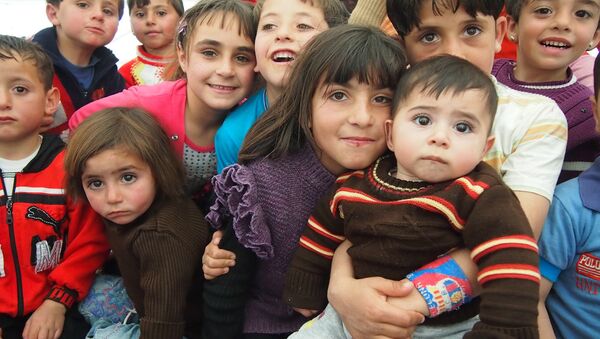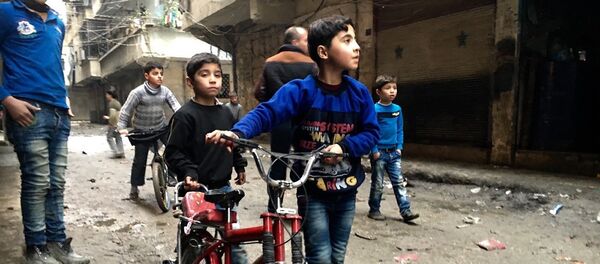The UN agency for child welfare said on Thursday that coming of age in a war-torn area might stem the development of neural cells' connections, which is crucial for a person's emotional well-being, cognitive abilities and general physical and mental health.
87m children under 7 have known only conflict, putting brain development at risk https://t.co/4QCVmfqDEH pic.twitter.com/VTyA0gMrdp
— UNICEF (@UNICEF) March 24, 2016
The statement also underlined that the crucial changes a person's brain undergoes over the first seven years of life depend on breastfeeding, opportunities to learn, and living in a safe environment — all things children in warzones are often denied.
"In addition to the immediate physical threats that children in crises face, they are also at risk of deep-rooted emotional scars," UNICEF's spokesperson Pia Rebello Britto said.
"Conflict robs children of their safety, family and friends, play and routine…Yet these are all elements of childhood that give children the best possible chance of developing fully and learning effectively, enabling them to contribute to their economies and societies, and building strong and safe communities when they reach adulthood," she added.
The number of children living in warzones has experienced a spike over the last few years, with the eruption of new conflicts across the Middle East.
In another recent report, UNICEF underlined how one out of three kids in Syria — which has been ravaged by chaos and civil war for six years — has been exposed to the daily trauma of war since birth.




